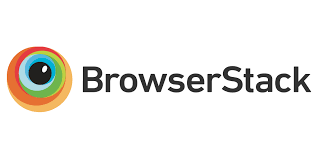Why did Mark Zuckerberg end Facebook and Instagram's ...

 View image in fullscreen
View image in fullscreen
Why did Mark Zuckerberg end Facebook and Instagram’s factchecking program?
The social media giant enters a more partisan political era as its CEO pursues Donald Trump’s approval
Meta is shifting to the right, following the prevailing political winds blowing through the United States. A more partisan era now looms for the social media giant and its corporate leaders, though Mark Zuckerberg himself has few personal politics other than ambition.
On Tuesday morning, Meta disbanded Facebook and Instagram’s third-party factchecking program. The company will also recommend more political content across its social networks.
CEO Zuckerberg announced the changes as he attempts to curry favor with Donald Trump’s incoming administration, demonstrating just how far he will go to win the president-elect’s approval.
“Recent elections also feel like a cultural tipping point towards once again prioritizing speech,” he said in a video posted on Instagram. “Factcheckers have just been too politically biased.”
Notes from everyday users will replace corrections from vetted factchecking partners, similar to Twitter/X’s Community Notes feature. In a post on Threads, Meta’s answer to X, Zuckerberg also vowed to reduce “censorship mistakes”, rhetoric that mirrors US conservatives’ longstanding charges that Facebook and Instagram unfairly penalize conservatives, for which there is little evidence. He lambasted coverage of Trump by “legacy media, which has pushed to censor more and more” and said that his own company’s previous content moderation policies resulted in “too much censorship” and had “gone too far”.
Trump immediately welcomed the changes. Asked if Zuckerberg was making so many rapid changes in response to invective from Trump – the president-elect threatened the CEO with “life in prison” in August – Trump said: “Probably. Yeah. Probably.” Trump told Fox News that Meta had “come a long way” and that its “presentation was excellent”.
A post shared by Mark Zuckerberg (@zuck)
This article includes content provided by Instagram. We ask for your permission before anything is loaded, as they may be using cookies and other technologies. To view this content, click 'Allow and continue'.
Cozying up to Maga
The night before, Meta announced the appointment of Dana White, CEO of Ultimate Fighting Championship (UFC), the de facto sport of the Maga movement, to its board. White has backed Trump since 2016.
Last week, the company rid itself of its most prominent centrist, Nick Clegg, former UK deputy prime minister, and elevated its most prominent conservative to its top policy job, Joel Kaplan, former deputy chief of staff to the Republican US president George W Bush. It was Kaplan who authored the blogpost pronouncing the factchecking initiative dead. Kaplan has championed conservative causes inside and outside Meta. Within, he has pushed Meta to partner with rightwing news websites on factchecking; placed prominent Republicans in key roles; and advocated for Facebook not to restrict fake news, arguing such a crackdown would unfairly penalize conservatives. Without, he championed the nomination of the conservative justice Brett Kavanaugh to the US supreme court. When Kavanaugh was called to testify about allegations of sexual assault, Kaplan sat behind him, visible on the aisle seat of the Senate chamber.
Meta – not Zuckerberg personally – donated $1m to Trump’s inaugural fund, as have a host of tech leaders. The CEO did dine with Trump at Mar-a-Lago two weeks ago and gifted him a pair of Meta Ray-Bans, the company’s camera-equipped glasses.
Meta’s most well-connected Democrat, Sheryl Sandberg, is no longer its chief operating officer nor even on its board. Zuckerberg has replaced her with White. Where Sheryl Sandberg wrote the manual for white-collar feminism, Lean In, White was filmed slapping his wife at a party in 2022 after she slapped him.
after newsletter promotion
Aping Elon: moving from California to Texas
Zuckerberg’s moves mirror steps Elon Musk, who gave about $200m to elect Trump, has taken in his haphazard management of X. Musk likewise dispensed with any third-party factchecking on X in favor of elevating Community Notes, though there was less there to begin with than on Facebook, Instagram and Threads.
“In a shift driven largely by Trump ally and X-owner Elon Musk, third-party factchecking has gone out of fashion among social executives. Social platforms have become more political and polarized, as misinformation has become a buzzword that encompasses everything from outright lies to viewpoints people disagree with,” said the eMarketer principal Jasmine Enberg.
Zuckerberg’s plays for approval from conservatives may spook liberals and even advertisers if Facebook and Instagram’s brand safety declines. They are ultimately unlikely to hurt Meta’s bottom line, though, she said. “Meta’s massive size and powerhouse ad platform insulate it somewhat from an X-like user and advertiser exodus. But any major drop-off in engagement could hurt Meta’s ad business, given the intense competition for users and ad dollars,” she said.
In announcing the dissolution of Facebook and Instagram’s factchecking, Zuckerberg said he would likewise shunt Meta’s content moderation teams from the Golden state to the Lone Star state. The CEO said the change of location would “help remove the concern that biased employees are overly censoring content”. Musk moved X’s headquarters to Texas from California, as he has done with SpaceX and Tesla.
Zuckerberg believes that Trump is dictating the terms of mainstream discourse in 2025. The CEO wrote that Meta would “remove restrictions on topics like immigration and gender that are out of touch with mainstream discourse”. Immigration and gender – two of Trump’s main campaign issues, harped on about again and again at his speeches. A dozen years ago, Zuckerberg wrote that immigration was vital to the US’s white-collar economy as he founded an organization to facilitate more of it, aligning with thrust of Barack Obama’s policies with the help of Sandberg.
If one state is biased, so is its replacement. Facebook and Instagram are so large that their terms of service in effect set the Overton window for online conversation across the world. That window has moved to the political right. The politics and laws of the state California allows people obtaining driver’s licenses to choose a non-binary option for their gender, X. Texas, by contrast, bans gender-affirming care for transgender minors. California’s governor has vowed to defend healthcare providers performing out-of-state abortions. Texas instituted a six-week abortion ban in 2021 before Roe v Wade was overturned. The laws and politics of the state will in part determine the acceptable range of discussion on Facebook and Instagram.
- Meta
- Mark Zuckerberg
- Donald Trump
- US politics
- Social networking
- Social media
- analysis


 United Kingdom
United Kingdom Argentina
Argentina  Australia
Australia  Austria
Austria  Brazil
Brazil  Canada
Canada  Germany
Germany  Ireland
Ireland  Italy
Italy  Malaysia
Malaysia  Mexico
Mexico  New Zealand
New Zealand  Poland
Poland  South Africa
South Africa  United States
United States 






















